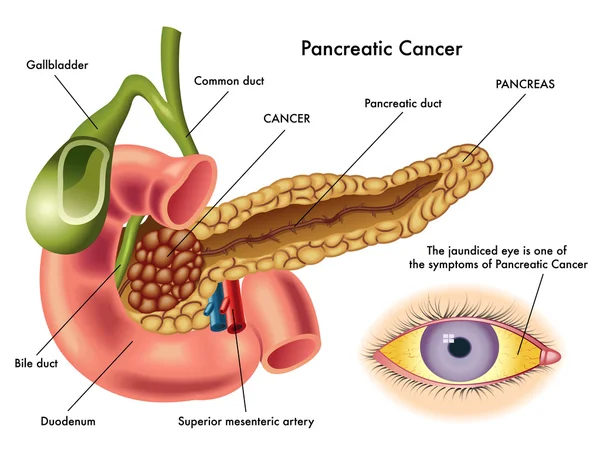Share this @internewscast.com
A new study published in the journal BIO Integration has found a causal link between diabetes and pancreatic cancer. The study, which utilized Mendelian randomization (MR) methods and an extensive human genome-wide association study (GWAS) dataset, provides compelling evidence that diabetes mellitus significantly increases the risk of developing pancreatic cancer.

“Our findings underscore the importance of early screening and intervention strategies for pancreatic cancer in individuals with diabetes mellitus,” stated Dr. [Lead Author], senior author of the study. “Given the aggressive nature of pancreatic cancer and its poor prognosis, early detection is crucial for improving patient outcomes.”
Causal Link Between Diabetes and Pancreatic Cancer
The study utilized the publicly accessible MR Base database to gather comprehensive genetic and epidemiological data related to diabetes mellitus and pancreatic cancer. Genetic variants, specifically single-nucleotide polymorphisms (SNPs) closely associated with diabetes mellitus, were selected for analysis using four robust MR methods: inverse variance weighted (IVW) analysis, weighted median analysis, weighted mode, and MR-Egger regression.

The IVW analysis yielded an odds ratio (OR) of 11.565, indicating a significant association between diabetes mellitus and an elevated risk of pancreatic cancer (P = 0.0296). This finding was further corroborated by the absence of horizontal pleiotropic effects (Egger intercept = 0.29, P = 0.384) and heterogeneity (P = 0.126), suggesting that the observed association was not influenced by confounding factors. Sensitivity analysis and other statistical methods also supported the conclusion that genetic pleiotropy did not introduce bias to the findings.
“Our study provides strong evidence that diabetes mellitus is not merely an associated risk factor for pancreatic cancer, but rather a causal factor,” explained Dr. [Lead Author]. “This understanding has significant implications for clinical practice and public health interventions.”
The study’s findings highlight the critical role of diabetes management in reducing pancreatic cancer risk. Healthcare providers should prioritize comprehensive diabetes care, including strict glycemic control, lifestyle modifications, and regular surveillance, for individuals with diabetes mellitus.
BIO Integration is an open-access journal dedicated to fostering multidisciplinary research and accelerating progress in modern medicine. The journal’s commitment to open access ensures that its findings are freely accessible to the global scientific community, facilitating knowledge exchange and driving innovation.
About BIO Integration
Read Related Also: How the ‘French Approach’ to Health Changed My Wellness Routine and Lowered My Stress Levels
BIO Integration is an open-access journal that publishes high-quality, peer-reviewed research across a broad spectrum of biomedical disciplines. The journal is committed to promoting innovative research, fostering collaboration among scientists from diverse fields, and disseminating knowledge to advance the practice of medicine.
What is the link between diabetes and pancreatic cancer?
The exact link between diabetes and pancreatic cancer is not yet fully understood, but there are a few possible explanations.
One possibility is that diabetes may cause inflammation in the pancreas, which can damage cells and make them more likely to become cancerous. Another possibility is that diabetes may lead to changes in the way that the body uses insulin, which can also increase the risk of pancreatic cancer.
What can be done to prevent pancreatic cancer?
There is no sure way to prevent pancreatic cancer, but there are a few things that people can do to reduce their risk.
- Maintaining a healthy weight: Obesity is a risk factor for pancreatic cancer, so maintaining a healthy weight is important.
- Eating a healthy diet: A diet that is low in red meat, processed foods, and high in fruits, vegetables, and whole grains may help to reduce the risk of pancreatic cancer.
- Exercising regularly: Exercise may help to reduce the risk of pancreatic cancer.
- Not smoking: Smoking is a major risk factor for pancreatic cancer.
- Controlling diabetes: If you have diabetes, it is important to control your blood sugar levels.
What are the symptoms of pancreatic cancer?
Pancreatic cancer often does not cause any symptoms until it is in its later stages. When symptoms do occur, they can include:
- Unexplained weight loss: Losing more than 10 pounds without trying is a common symptom of pancreatic cancer.
- Abdominal pain: Pain in the abdomen that does not go away is also a common symptom of pancreatic cancer.
- Jaundice: Jaundice is a yellowing of the skin and eyes that can be caused by pancreatic cancer.
- Dark urine: Dark urine can also be a symptom of pancreatic cancer.
- Light-colored stools: Light-colored stools can be a symptom of pancreatic cancer.
If you are experiencing any of these symptoms, it is important to see your doctor right away. Pancreatic cancer is a very serious disease, but early diagnosis and treatment can improve the chances of survival.
Resources:
Note: This article is written based on scientific evidence found by the Coza24.com team. Sources are duly referenced with keywords hyperlinked to source websites and are clickable for reference.












